Should University Ban Sugar-Sweetened Beverages? Essay
VerifiedAdded on 2021/09/23
|5
|907
|230
Essay
AI Summary
This essay argues in favor of a university ban on sugar-sweetened beverages (SSBs), emphasizing the detrimental health impacts associated with their consumption. The author supports the ban by citing research highlighting the negative effects of SSBs such as blood sugar imbalances, poor dental health, and obesity. The essay acknowledges counterarguments, such as the hydrating properties of SSBs, but counters them by emphasizing the availability of healthier alternatives like water. The author references studies on population-based interventions to reduce SSB consumption and suggests targeted campaigns to educate students about the risks of SSBs. The essay further explores the importance of considering substitute beverages that might arise from the ban, and the potential social and educational benefits of eliminating sugary drinks from the university environment, including improved student health and behavior. The conclusion underscores the significance of the ban in enhancing consumer health and social life, advocating for awareness campaigns to educate people on the hazards of SSB consumption.
1 out of 5
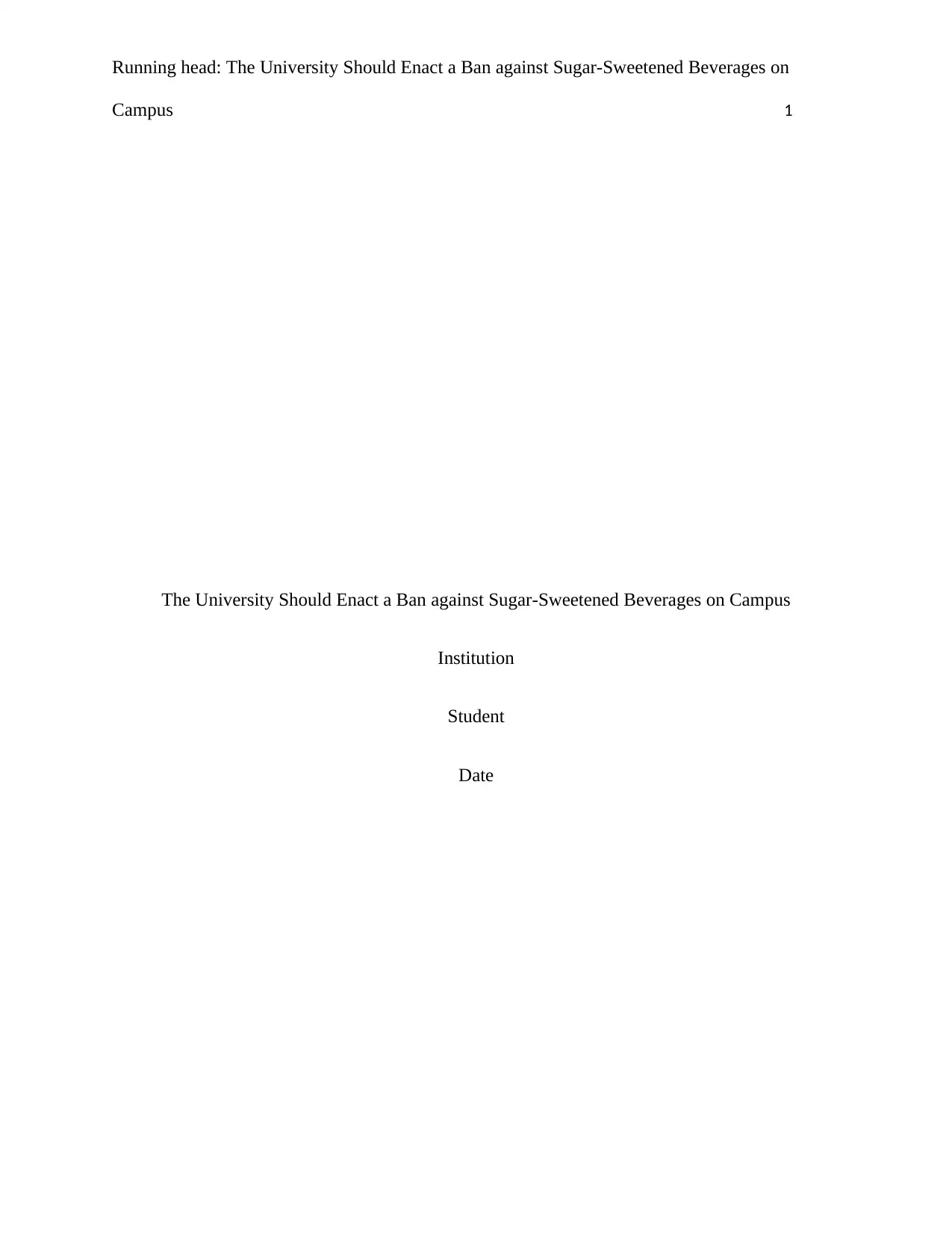
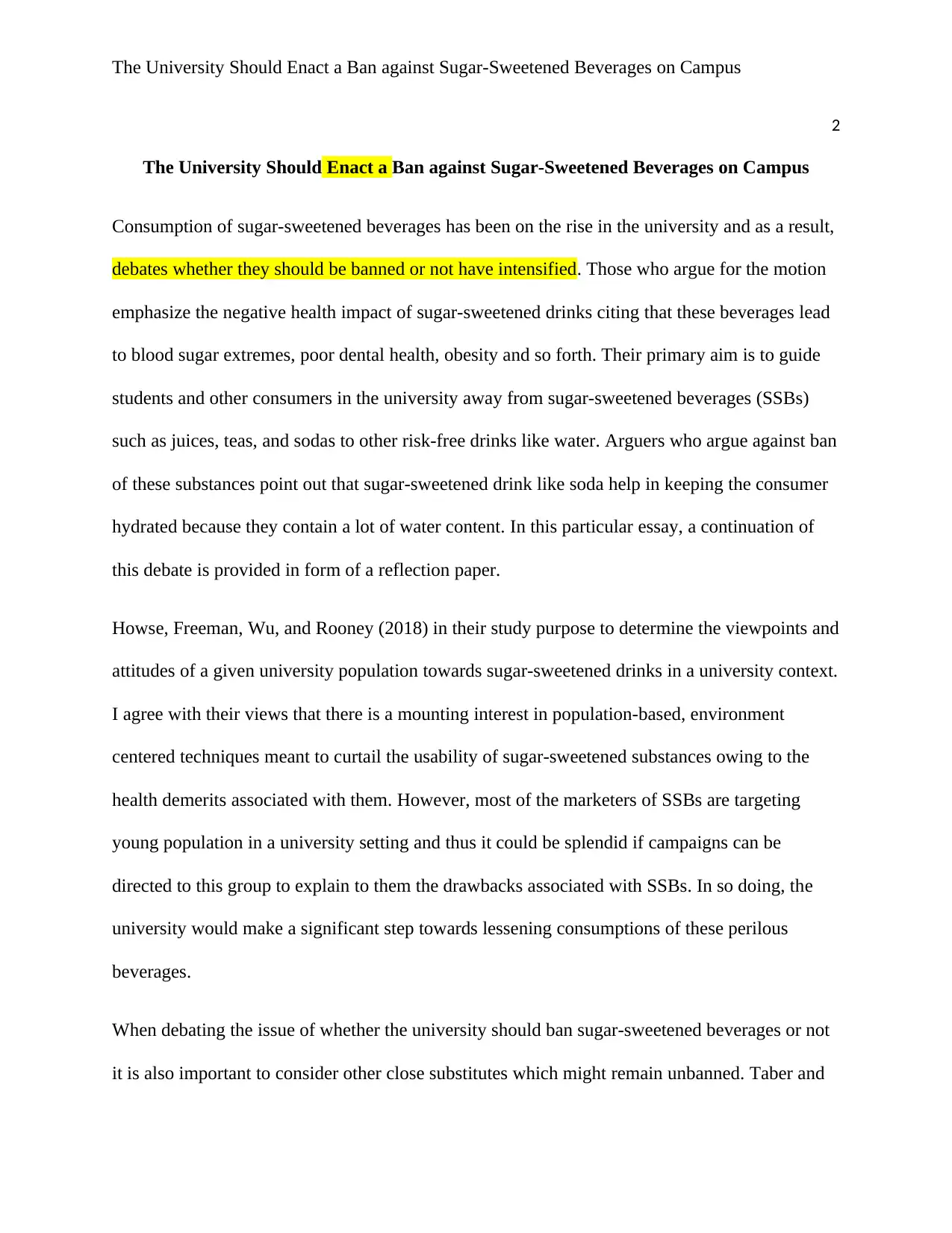
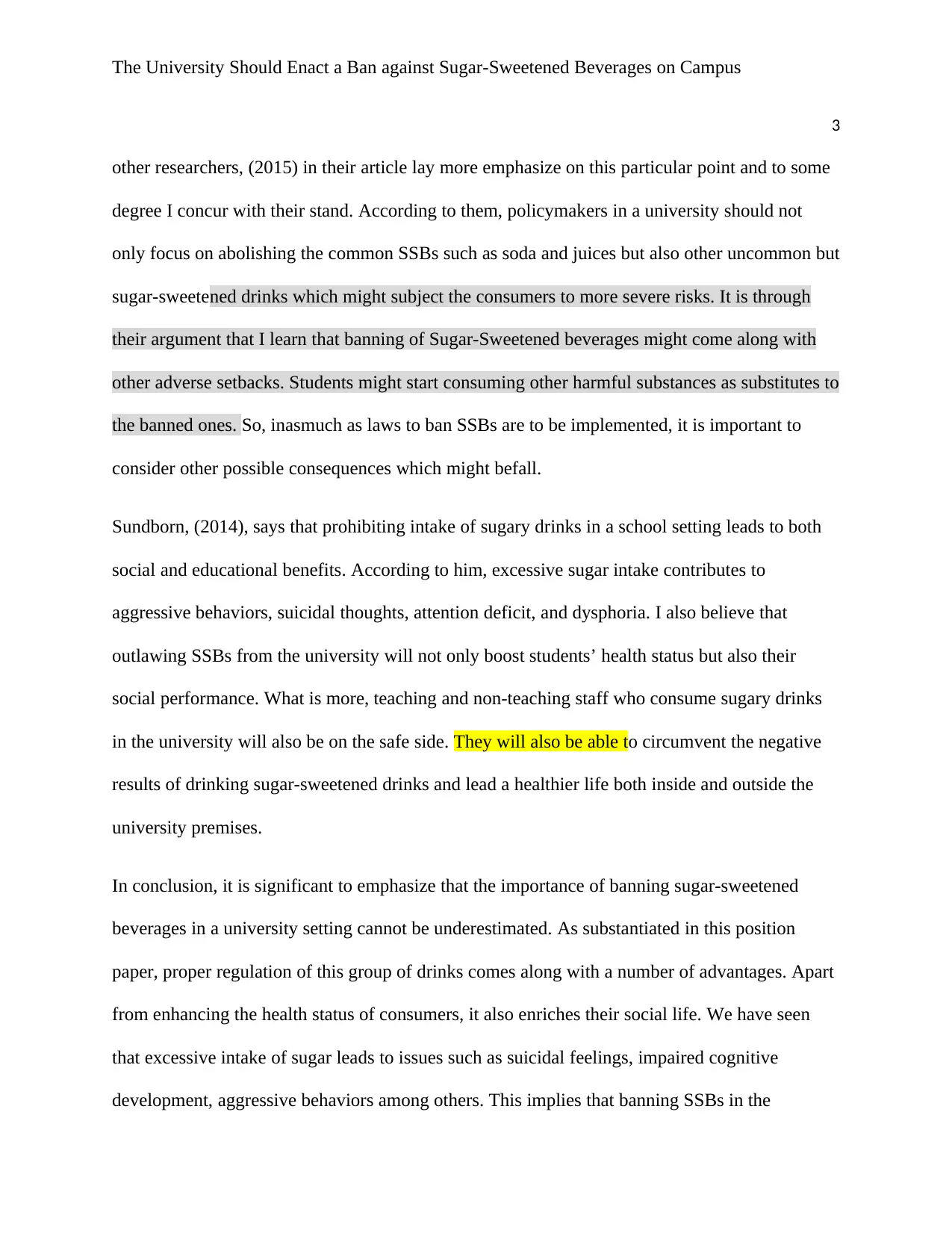

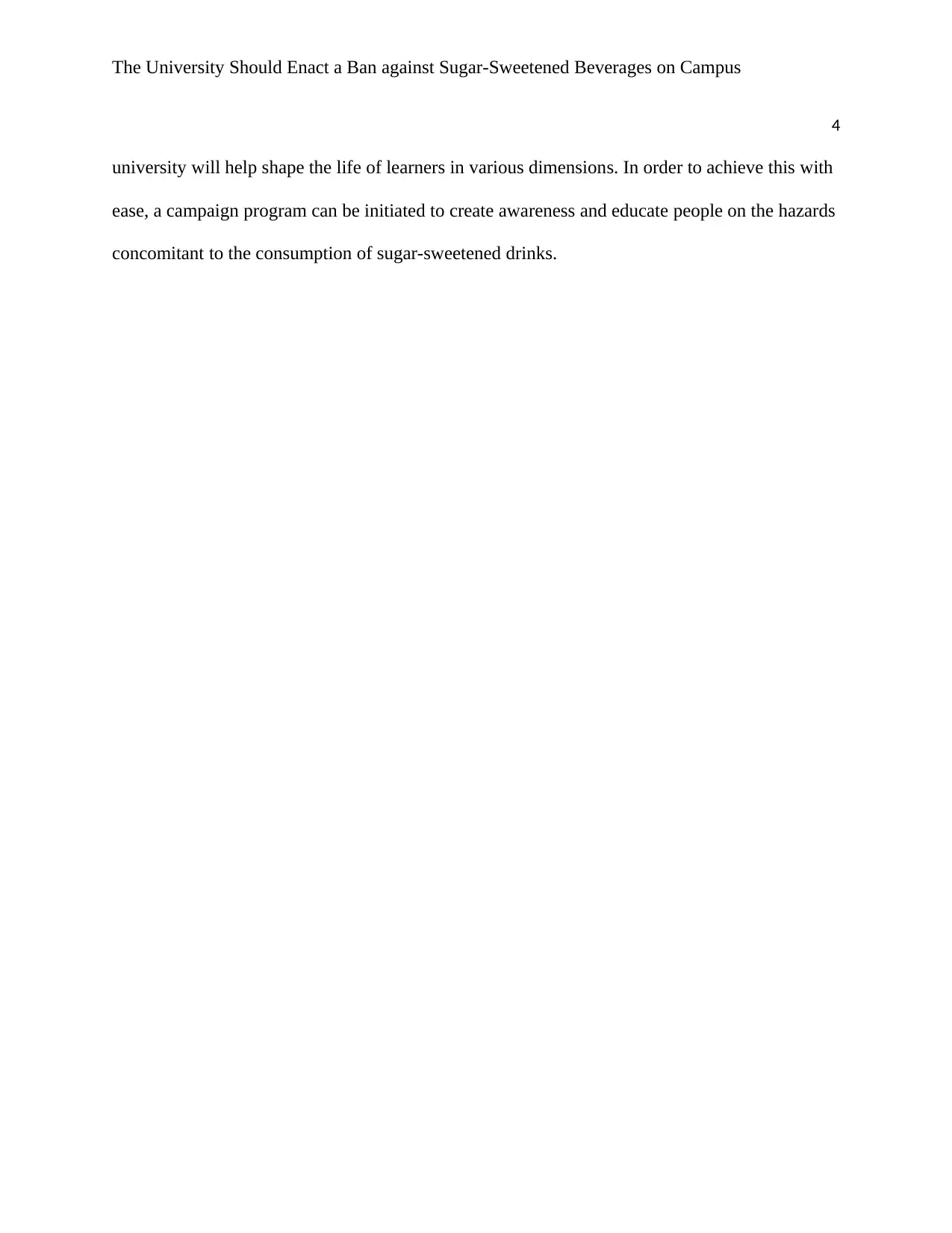
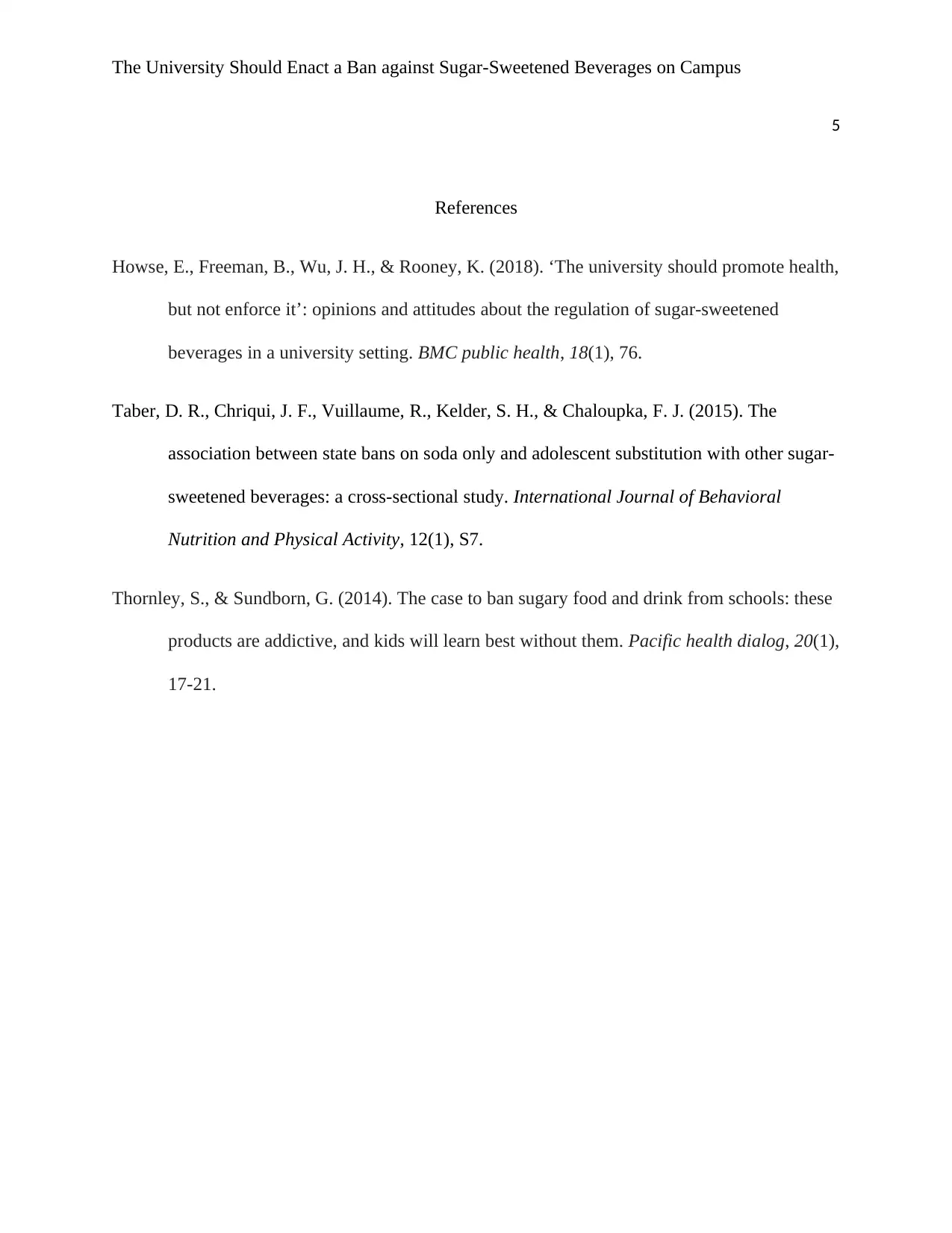

![[object Object]](/_next/static/media/star-bottom.7253800d.svg)